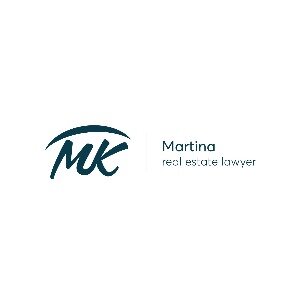Best Landlord & Tenant Lawyers in Czechia
Share your needs with us, get contacted by law firms.
Free. Takes 2 min.
Free Guide to Hiring a Real Estate Lawyer
Or refine your search by selecting a city:
List of the best lawyers in Czechia
About Landlord & Tenant Law in Czechia
Landlord & Tenant law in Czechia governs the relationship between property owners (landlords) and tenants. It includes regulations regarding rental agreements, property maintenance, rent payments, and dispute resolution.
Why You May Need a Lawyer
You may need a lawyer for assistance in drafting or reviewing rental agreements, resolving disputes over property maintenance or rent payments, handling evictions, and understanding your rights and obligations as a tenant or landlord.
Local Laws Overview
In Czechia, landlords are required to provide a written lease agreement outlining the terms of the rental, including the amount of rent, payment terms, and obligations of both parties. Tenants have the right to a habitable living space and proper notice before any changes to the lease agreement.
Frequently Asked Questions
1. How much notice does a landlord have to give before evicting a tenant in Czechia?
In Czechia, landlords must give tenants at least three months' notice before evicting them, unless there are exceptional circumstances such as non-payment of rent or damage to the property.
2. Can a landlord raise the rent at any time?
No, landlords in Czechia can only raise the rent once a year, and they must provide tenants with at least three months' notice before doing so.
3. What are the responsibilities of a landlord in Czechia?
Landlords in Czechia are responsible for maintaining the property in a habitable condition, making any necessary repairs, and ensuring that all amenities are in working order.
4. Can a tenant sublet their rental property in Czechia?
Tenants in Czechia can only sublet their rental property with the landlord's permission, which should be specified in the rental agreement.
5. Can a landlord enter the rental property without the tenant's permission?
In Czechia, landlords must give tenants at least 48 hours' notice before entering the rental property, except in cases of emergency.
6. How can a tenant terminate a lease agreement in Czechia?
Tenants in Czechia can terminate a lease agreement by giving the landlord at least three months' notice in writing.
7. Can a landlord withhold a security deposit for any reason?
Landlords in Czechia can only withhold a security deposit to cover unpaid rent, damage to the property, or cleaning costs beyond normal wear and tear.
8. What are the penalties for violating Landlord & Tenant laws in Czechia?
Violations of Landlord & Tenant laws in Czechia can result in fines, mandatory repairs, or termination of the rental agreement.
9. Can a tenant refuse to pay rent if the landlord does not make necessary repairs?
Tenants in Czechia cannot refuse to pay rent, but they can request repairs in writing and take legal action if the landlord fails to address the issues.
10. How can a tenant prove that they paid rent to the landlord in Czechia?
Tenants should always keep records of rent payments, such as bank statements or receipts, to prove that they have fulfilled their rental obligations.
Additional Resources
For more information on Landlord & Tenant laws in Czechia, you can refer to the Ministry of Regional Development or contact the Czech Bar Association for a list of qualified legal professionals specializing in real estate law.
Next Steps
If you need legal assistance with Landlord & Tenant matters in Czechia, consider contacting a qualified lawyer who can provide guidance and representation to help you navigate the complexities of rental agreements, disputes, and other related issues.
Lawzana helps you find the best lawyers and law firms in Czechia through a curated and pre-screened list of qualified legal professionals. Our platform offers rankings and detailed profiles of attorneys and law firms, allowing you to compare based on practice areas, including Landlord & Tenant, experience, and client feedback.
Each profile includes a description of the firm's areas of practice, client reviews, team members and partners, year of establishment, spoken languages, office locations, contact information, social media presence, and any published articles or resources. Most firms on our platform speak English and are experienced in both local and international legal matters.
Get a quote from top-rated law firms in Czechia — quickly, securely, and without unnecessary hassle.
Disclaimer:
The information provided on this page is for general informational purposes only and does not constitute legal advice. While we strive to ensure the accuracy and relevance of the content, legal information may change over time, and interpretations of the law can vary. You should always consult with a qualified legal professional for advice specific to your situation.
We disclaim all liability for actions taken or not taken based on the content of this page. If you believe any information is incorrect or outdated, please contact us, and we will review and update it where appropriate.
Browse landlord & tenant law firms by city in Czechia
Refine your search by selecting a city.











